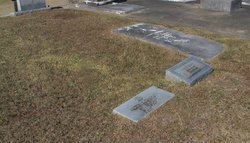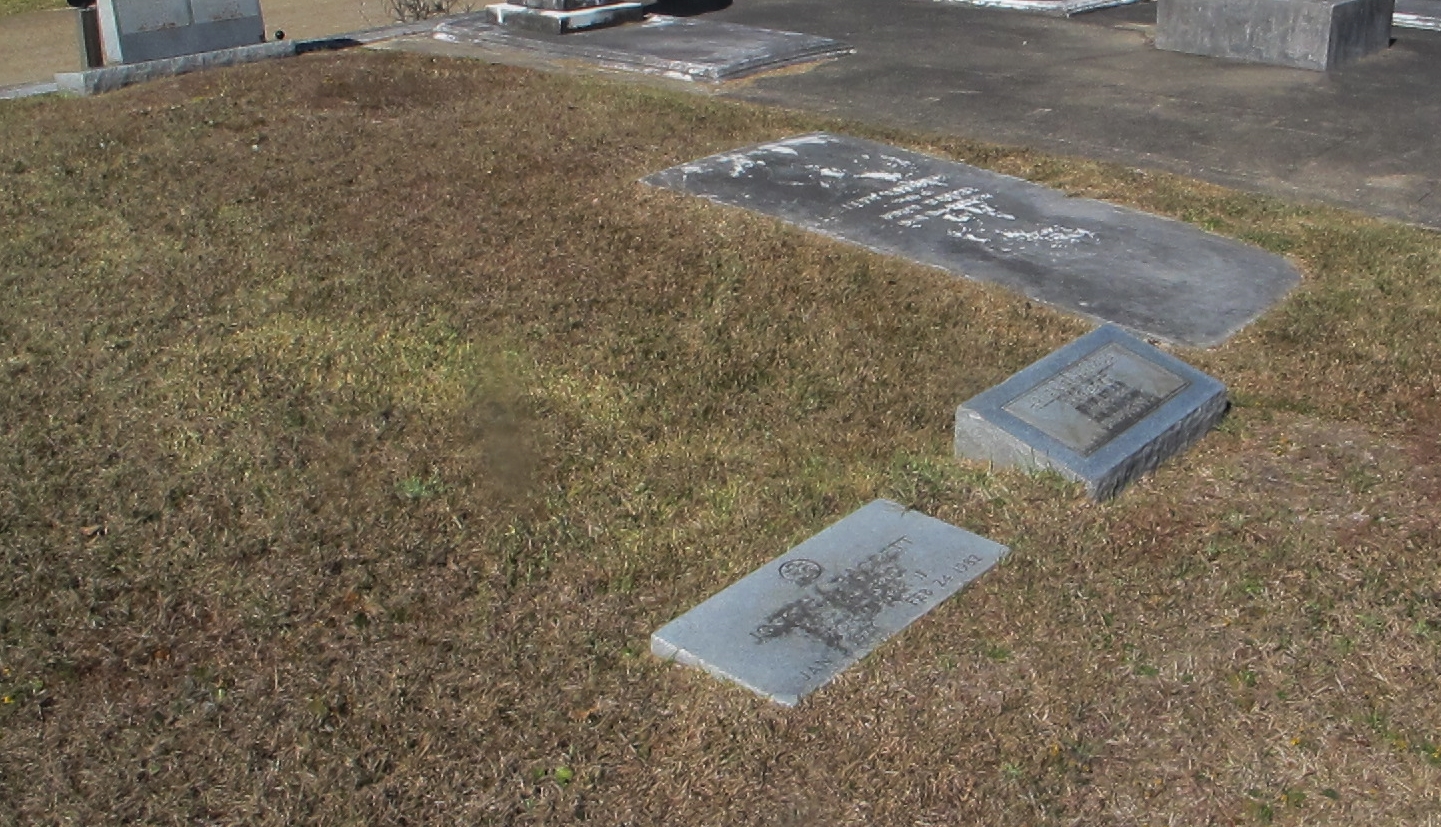US Congressman, Physician, and Lawyer. He was a United States Representative from the State of Alabama. He was born one of seven children to John Williams Walker (1783-1823) and his wife, Matilda Pope Walker (1791-1835), in Huntsville, Alabama, in December of 1812, but the exact date is unknown to historians. His siblings included Charles Henry Walker (-1822), Mary Jane Walker (1810-1854, last name later Fearn), John James Walker (1815-1884), LeRoy Pope Walker (1817-1884), William Memorable Walker (1821-1863), and Richard Wilde Walker (1823-1874). He was educated locally and completed preparatory studies before attending and graduating from the prestigious medical department of the University of Pennsylvania in Philadelphia, Pennsylvania, in 1835. He then commenced his practice of medicine in Mobile, Alabama, shortly thereafter. He then served in the military against the Creek Indians. Following his military service, he studied law, was admitted to the bar, and commenced his practice of law in Mobile, Alabama, shortly thereafter. He then took an interest in politics and served as Alabama's State's Attorney for the 6th Judicial District. He also served as a Member of the Alabama State House of Representatives in 1839, 1847, and again in 1853. He then decided to run for a seat in the United States Congress and was elected to succeed the outgoing United States Representative Philip Phillips (1807-1884) on March 4, 1855. A Member of the Know Nothing Party, he then served Alabama's 1st District (Thirty-Forth Congress) in the United States House of Representatives from March 4, 1855, to March 3, 1857. He declined to be a Candidate for renomination in 1856. In total, he was elected in 1855 and retired in 1856. Following his time in the United States Congress, he was succeeded in office by the incoming United States Representative James Adams Stallworth (1822-1861) on March 4, 1857. After leaving the United States Congress, he was a Candidate for Representative from the State of Alabama in the Confederate Congress, representing the 9th District in 1861. He was also an enslaver. He was a member of the famous Walker-Randolph political family of Huntsville, Alabama, which also included, his father, John Williams Walker (1783-1823), who served as Member of Alabama Territorial Legislature in 1810, as a Delegate to Alabama State Constitutional Convention in 1819, and as a United States Senator from Alabama from 1819 to 1822, his brother, Leroy Pope Walker (1807-1884), who served as Member of Alabama State House of Representatives from 1843 to 1844, 1847 to 1851, and again in 1853, as a Delegate to Democratic National Convention from the State of Alabama in 1860, and 1876 (Member, Resolutions Committee), in 1884, Confederate Secretary of War in 1861, served with the rank of General in the Confederate Army during the American Civil War from 1861 to 1865, and as a Delegate to the Alabama State Constitutional Convention in 1875, his brother Richard Wilde Walker (1823-1874), who served as a Member of Alabama State Legislature in 1851, and 1855, as an Associate Justice of Alabama State Supreme Court in 1859, as a Delegate from the State of Alabama to the Confederate Provisional Congress from 1861 to 1862, and as a Senator from the State of Alabama in the Confederate Congress from 1864 to 1865, his nephew John Williams Walker Fearn (1832-1899), who served with the rank of Colonel in the Confederate Army during the Civil War from 1861 to 1865, as United States Minister to Romania from 1885 to 1889, United States Minister to Serbia from 1885 to 1889, United States Minster to Greece from 1885 to 1889, and United States Consul General in Athens, Greece, from 1885 to 1889, his nephew, Richard Wilde Walker (1857-1936), who served as an Associate Justice of the Alabama State Supreme Court from 1891 to 1892, and as a Judge of the United States Court of Appeals for the 5th Circuit from 1914 to 1930, his great grand nephew, Richard Walker Bolling (1916-1991), who served in the United States Army during World War II, Chair of the House Rules Committee from January 3, 1979, to January 3, 1983, and a United States Representative from Missouri 5th District from January 3, 1949, to January 3, 1983. He passed away in Mobile, Alabama, on December 27, 1880, at the age of 67 or 68. Following his death, he was buried in Magnolia Cemetery in Mobile, Alabama. He was married to Ellen Marie Lipscomb Walker (1817-1879) in Mobile, Alabama, on December 27, 1836. The couple had no children together. His wife Ellen predeceased him, passing away on December 17, 1879, at the age of 61 or 62, and she is also buried in Magnolia Cemetery in Mobile, Alabama.
US Congressman, Physician, and Lawyer. He was a United States Representative from the State of Alabama. He was born one of seven children to John Williams Walker (1783-1823) and his wife, Matilda Pope Walker (1791-1835), in Huntsville, Alabama, in December of 1812, but the exact date is unknown to historians. His siblings included Charles Henry Walker (-1822), Mary Jane Walker (1810-1854, last name later Fearn), John James Walker (1815-1884), LeRoy Pope Walker (1817-1884), William Memorable Walker (1821-1863), and Richard Wilde Walker (1823-1874). He was educated locally and completed preparatory studies before attending and graduating from the prestigious medical department of the University of Pennsylvania in Philadelphia, Pennsylvania, in 1835. He then commenced his practice of medicine in Mobile, Alabama, shortly thereafter. He then served in the military against the Creek Indians. Following his military service, he studied law, was admitted to the bar, and commenced his practice of law in Mobile, Alabama, shortly thereafter. He then took an interest in politics and served as Alabama's State's Attorney for the 6th Judicial District. He also served as a Member of the Alabama State House of Representatives in 1839, 1847, and again in 1853. He then decided to run for a seat in the United States Congress and was elected to succeed the outgoing United States Representative Philip Phillips (1807-1884) on March 4, 1855. A Member of the Know Nothing Party, he then served Alabama's 1st District (Thirty-Forth Congress) in the United States House of Representatives from March 4, 1855, to March 3, 1857. He declined to be a Candidate for renomination in 1856. In total, he was elected in 1855 and retired in 1856. Following his time in the United States Congress, he was succeeded in office by the incoming United States Representative James Adams Stallworth (1822-1861) on March 4, 1857. After leaving the United States Congress, he was a Candidate for Representative from the State of Alabama in the Confederate Congress, representing the 9th District in 1861. He was also an enslaver. He was a member of the famous Walker-Randolph political family of Huntsville, Alabama, which also included, his father, John Williams Walker (1783-1823), who served as Member of Alabama Territorial Legislature in 1810, as a Delegate to Alabama State Constitutional Convention in 1819, and as a United States Senator from Alabama from 1819 to 1822, his brother, Leroy Pope Walker (1807-1884), who served as Member of Alabama State House of Representatives from 1843 to 1844, 1847 to 1851, and again in 1853, as a Delegate to Democratic National Convention from the State of Alabama in 1860, and 1876 (Member, Resolutions Committee), in 1884, Confederate Secretary of War in 1861, served with the rank of General in the Confederate Army during the American Civil War from 1861 to 1865, and as a Delegate to the Alabama State Constitutional Convention in 1875, his brother Richard Wilde Walker (1823-1874), who served as a Member of Alabama State Legislature in 1851, and 1855, as an Associate Justice of Alabama State Supreme Court in 1859, as a Delegate from the State of Alabama to the Confederate Provisional Congress from 1861 to 1862, and as a Senator from the State of Alabama in the Confederate Congress from 1864 to 1865, his nephew John Williams Walker Fearn (1832-1899), who served with the rank of Colonel in the Confederate Army during the Civil War from 1861 to 1865, as United States Minister to Romania from 1885 to 1889, United States Minister to Serbia from 1885 to 1889, United States Minster to Greece from 1885 to 1889, and United States Consul General in Athens, Greece, from 1885 to 1889, his nephew, Richard Wilde Walker (1857-1936), who served as an Associate Justice of the Alabama State Supreme Court from 1891 to 1892, and as a Judge of the United States Court of Appeals for the 5th Circuit from 1914 to 1930, his great grand nephew, Richard Walker Bolling (1916-1991), who served in the United States Army during World War II, Chair of the House Rules Committee from January 3, 1979, to January 3, 1983, and a United States Representative from Missouri 5th District from January 3, 1949, to January 3, 1983. He passed away in Mobile, Alabama, on December 27, 1880, at the age of 67 or 68. Following his death, he was buried in Magnolia Cemetery in Mobile, Alabama. He was married to Ellen Marie Lipscomb Walker (1817-1879) in Mobile, Alabama, on December 27, 1836. The couple had no children together. His wife Ellen predeceased him, passing away on December 17, 1879, at the age of 61 or 62, and she is also buried in Magnolia Cemetery in Mobile, Alabama.
Bio by: The Silent Forgotten
Family Members
Advertisement
See more Walker memorials in:
Explore more
Sponsored by Ancestry
Advertisement











